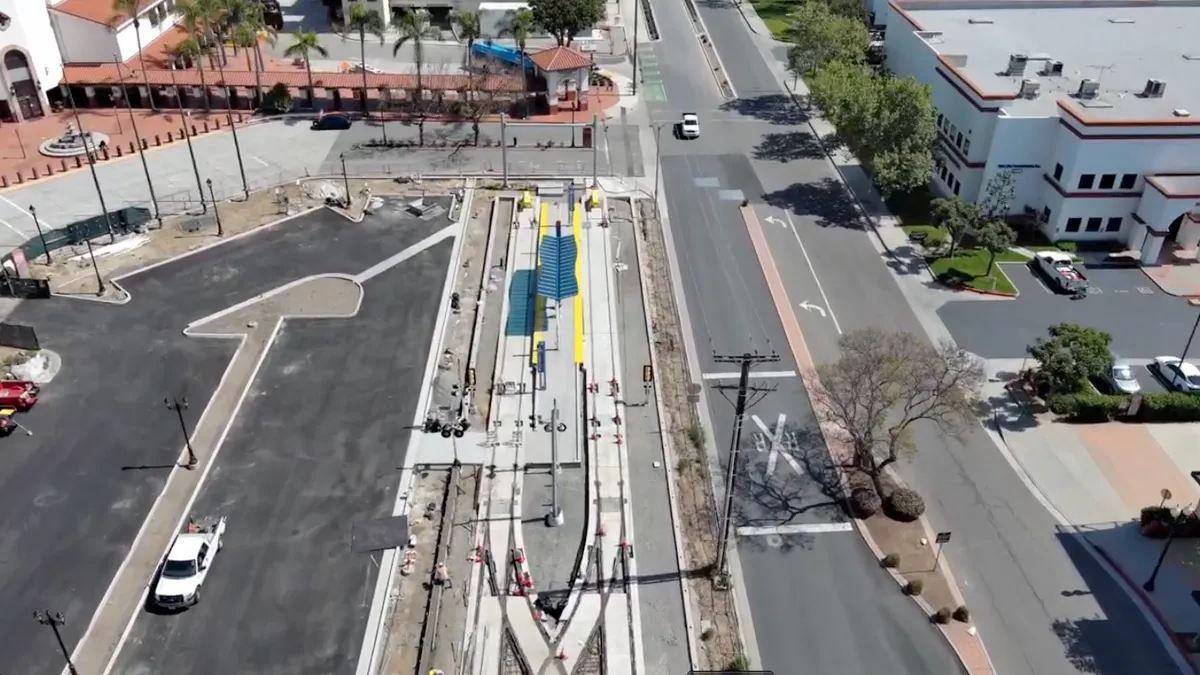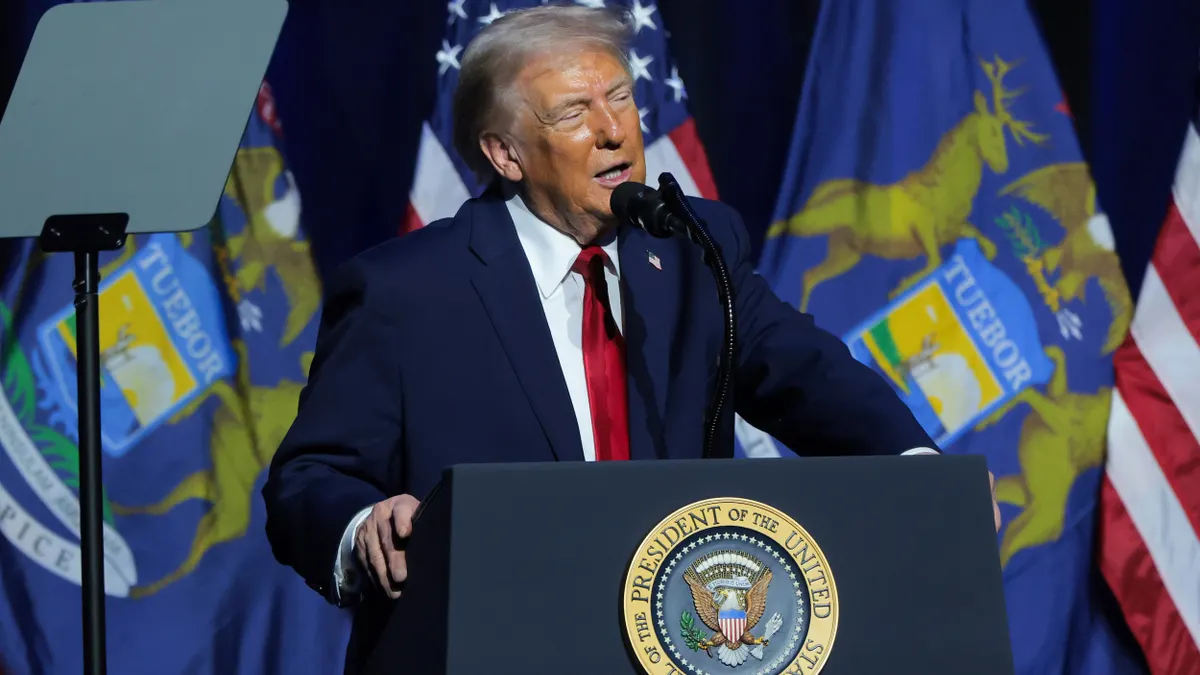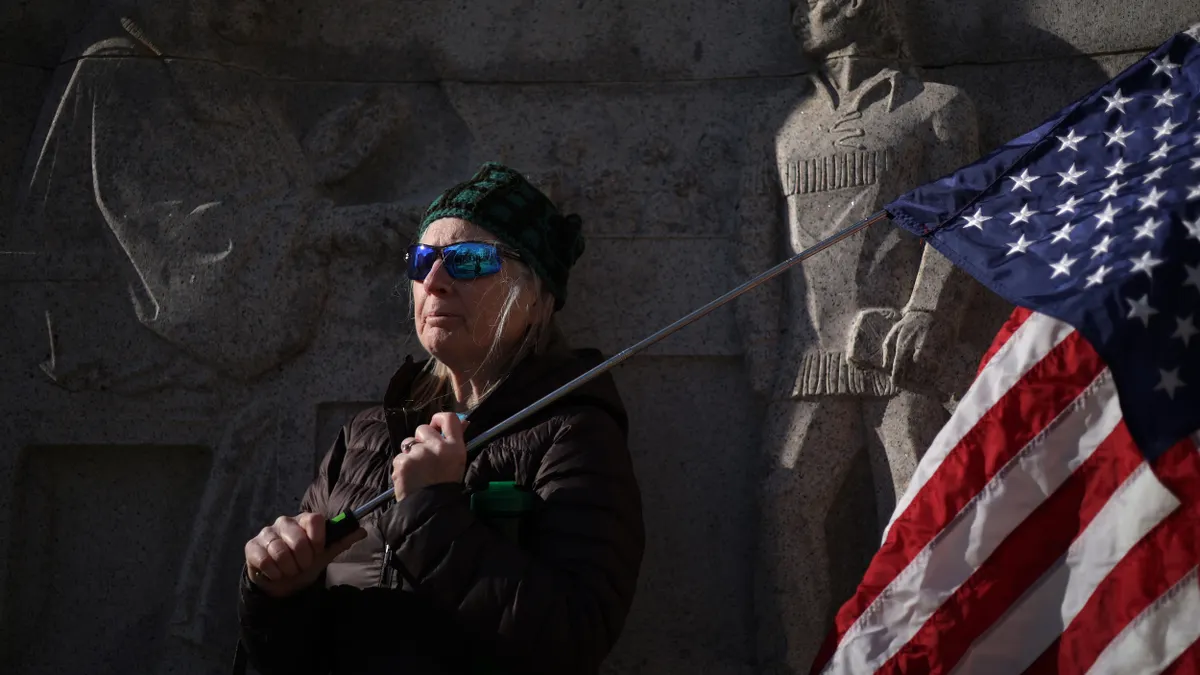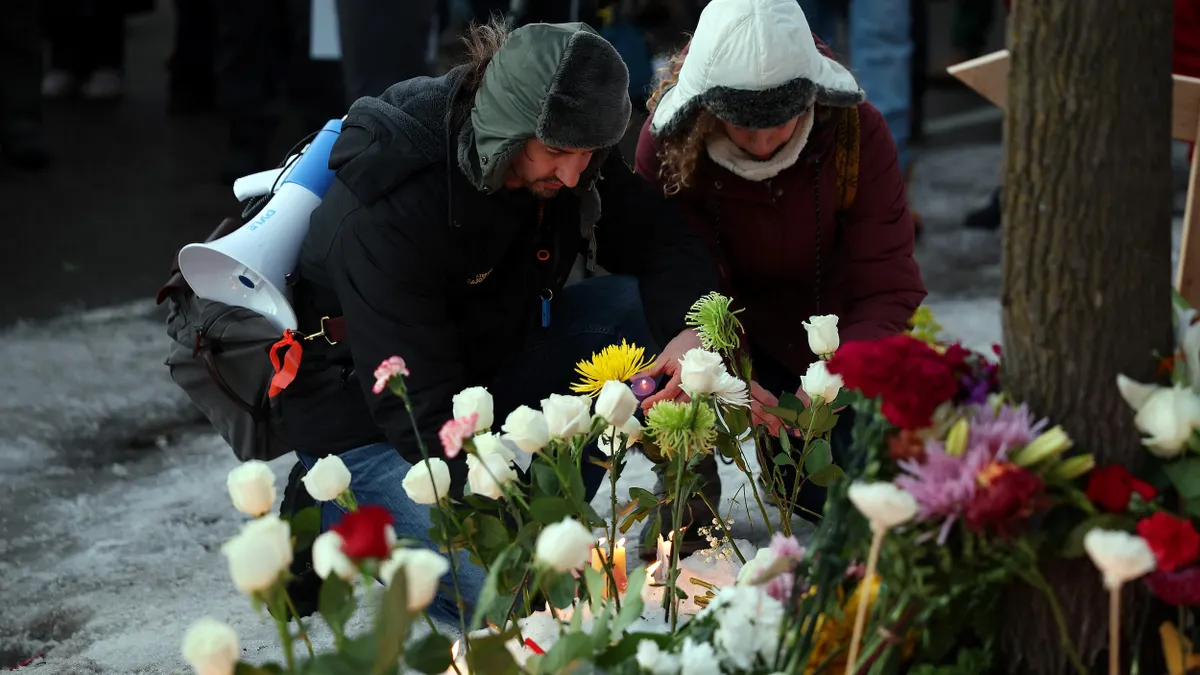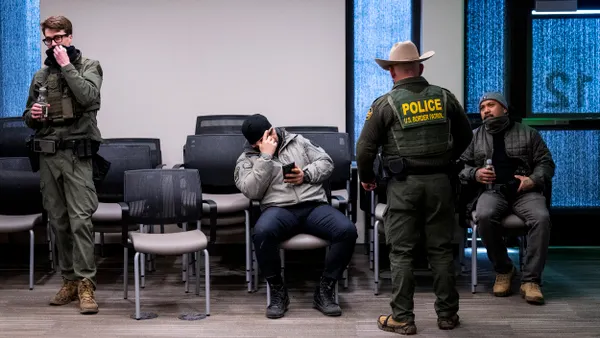As the Trump administration accelerates pressure on states and cities to cooperate with its immigration enforcement actions, many local leaders are holding their ground. These leaders say voluntary cooperation with U.S. Immigrations and Customs Enforcement risks damaging relationships between elected and public safety leaders and their community members.
ICE workplace raids last week sparked ongoing protests in Los Angeles that are spreading to other cities. ICE agents arrested 118 people in Los Angeles, including, it said, five gang members and numerous “criminal aliens.”
Department of Homeland Security Assistant Secretary Tricia McLaughlin in a statement Monday accused California Gov. Gavin Newsom and Los Angeles Mayor Karen Bass of caring “more about violent criminal illegal aliens than they do about protecting their own citizens.”
Bass, in a Sunday news conference, said the raids are creating a climate of “fear and chaos” in Los Angeles. “This impacts all of our city,” she said. “You can’t terrify the workplace [and the] workforce and then expect people to get the jobs done.”
Los Angeles Police Chief Jim McDonnell has reiterated that his department will continue to enforce the city’s ordinance prohibiting the use of city resources for federal immigration enforcement.
“We recognize that immigration enforcement operations can cause deep fear and anxiety, particularly in immigration communities,” McDonnell said during a Sunday press conference. “That’s why we’re committed to transparency, accountability and treating every Angeleno with respect regardless of immigration status. Our job is not to divide communities or politicize law enforcement. Our job is simply to keep everyone safe.”
In April, President Donald Trump signed an executive order threatening to cut off federal funding to cities — which he often calls “sanctuary cities” — that he said aren’t complying with federal immigration laws and directing U.S. Attorney General Pam Bondi and Homeland Security Secretary Kristi Noem “to pursue all necessary legal remedies and enforcement measures to bring non-compliant jurisdictions into compliance.” While the term “sanctuary cities” has no official definition, it's often used to describe cities that prohibit voluntary cooperation or information-sharing with immigration enforcement authorities.
Officials in “sanctuary cities” across the country have vowed they won’t back down.
In Massachusetts, officials in the communities of Somerville and Chelsea filed a preliminary injunction motion on June 3 asking a federal court “to block the Trump administration’s attempts to strip them of federal funding because they refuse to be coerced into participating in the Administration’s mass deportation efforts,” according to a Somerville press release. The motion is part of a lawsuit the cities filed in February asserting that Trump’s threats to defund sanctuary cities violates their constitutional rights.
“Our residents know that our community is safer when police focus on preventing crime rather than raiding the local sandwich shop,” Somerville Mayor Katjana Ballantyne said in the release. “We know that spreading hate and lies about an entire group of people has historically led to harm and injustice for all.”
Chelsea City Manager Fidel Maltez said in an interview that the $14.5 million Chelsea receives in federal funding is crucial for its public safety and community programs. But Chelsea’s sanctuary city designation also is crucial for public safety, he said.
“Chelsea has spent a lot of time building trust with our communities,” Maltez said. “If our community fears our officers, they will not call us when something is wrong. They will not call us when there is a robbery happening. They won’t call us when they are victims of a crime. So, when that trust is eroded, we all lose. It is a detriment to public safety in our community.”
Trump administration threats to federal funding mean Chelsea could have “to choose between our local values and providing services to residents,” Maltez said. “If we say to [residents], ‘We value federal funding more than we value your protection,’ it goes counter to everything that we’ve been trying to build in Chelsea for the last 20 years.”
Oren Sellstrom, litigation director with Lawyers for Civil Rights, which is representing the cities, said in an interview that the crux of the lawsuit “aims to protect community trust and safety by preventing local jurisdictions from engaging in federal immigration enforcement.”
“The outcome could set a precedent for other sanctuary cities,” Sellstrom added.
Sellstrom called Trump’s deployment of National Guard and U.S. Marine troops to Los Angeles another example of “extreme overreach on immigration enforcement.”
“This escalating pattern of federal overreach is sowing chaos at the local level and is undermining public safety for everyone,” he said.





